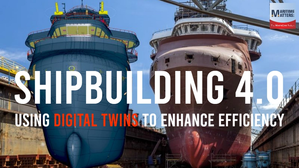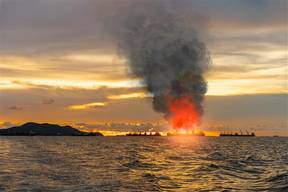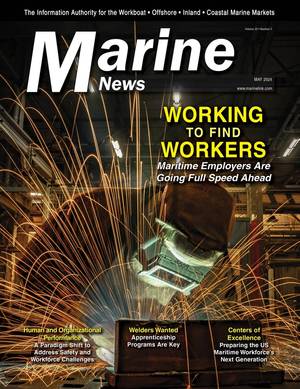Autonomy Will Advance Maritime Decarbonization
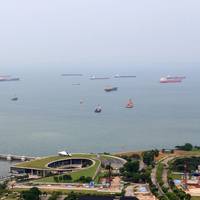
Technologies are mature and ready to support maritime work towards 2050 net-zero goals but regulations around systems development require further work.The complex decarbonized systems of the future will require autonomous management systems for viable exploitation. These were among some of the key insights shared with delegates at a one-day Automation Summit, part of Singapore Maritime Week, led by The National Physical Laboratory (NPL) and Lloyd’s Register.Potential efficiency…
Self-Driving Ferry Service Envisioned to Link the Fosen Peninsula
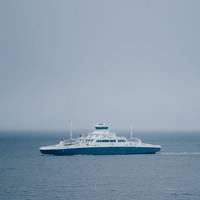
Torghatten, a Norwegian ferry operator, and Kongsberg Maritime have entered into a contract for the development of a system for self-driving ferries on the Flakk-Rørvik route.The car ferry service operation is part of the Norwegian highway network – County Road 715 - and connects the city of Trondheim with communities on the Fosen peninsula.The project will see Kongsberg Maritime technologies installed on the ferries, including its auto docking, auto crossing, collision avoidance and situational awareness capabilities.
Situational Awareness System Battles Cognitive Fatigue in Watchkeepers
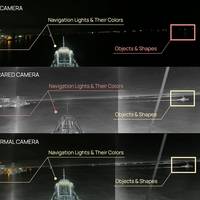
Today’s evolving maritime security risks pose all-too-familiar threats to international shipping, and as just one of the many causes of fatigue, they add to the cognitive burden already faced by watchkeepers. But Groke Technologies can boost safety onboard, says co-founder and CEO Juha Rokka.Life at sea is already physically and mentally demanding. Crewing levels are tight, work hours are long and irregular, watchkeepers are required to perform administrative tasks while on the bridge…
Germany Opens Remote-Controlled Center for Inland Shipping
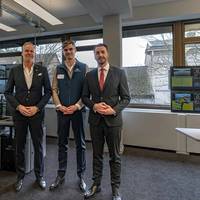
SEAFAR, a Belgian technology and service provider for remote-controlled inland waterway shipping operations, has set up the first Remote Operations Center in Germany; a project completed in conjunction with HGK Shipping and Reederei Deymann.The Remote Operations Center, opened on February 28, 2024, enables captains to navigate vessels on inland waterways from dry land, a development seen as central to stemming problems from the shortage of specialist workers. The partners are working with the public authorities to use the permits…
Kongsberg Discovery Wins US Navy DIU Contract
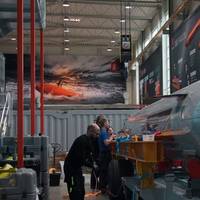
Kongsberg Discovery announced a Defense Innovation Unit (DIU) award to assist in the U.S. Navy’s Large Displacement Unmanned Underwater Vehicle (LDUUV) prototype.Kongsberg Discovery has been awarded a contract with the Defense Innovation Unit (DIU) to rapidly deliver HUGIN Autonomous Underwater Vehicle (AUV) capabilities for the U.S. Military. The total contract could result in the Navy acquiring HUGIN Endurance and HUGIN Superior deep-water AUV systems.HUGIN Endurance, one of the newest members in the HUGIN AUV family, measures 39-ft. long and nearly 4-ft.
Anschütz Advances the Autonomous Bridge System
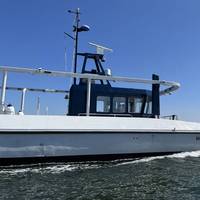
As part of the Clean Autonomous Public Transportation Network (CAPTN) initiative, Anschütz' research into autonomous systems and assistance systems onboard ships that support navigators has made progress in 2023. In the Remote Operating Centre (ROC) which is set up on land at Anschütz, the MV Wavelab -- a research catamaran that is operating on a maritime test field on the Kiel Fjord in Germany -- is monitored. Part of the ROC is a complete digital twin with all the data provided by the various existing and experimental sensors and systems on board the Wavelab.
ClassNK Grants AIP for Maneuvering Assist System
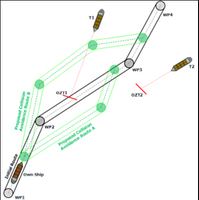
Classification society ClassNK reports it has issued an approval in principle (AIP) for the “Advanced Maneuvering Assistant System”, the core technology for the autonomous navigation system, developed by Kawasaki Kisen Kaisha, Ltd., Kawasaki Kinkai Kisen Kaisha, Ltd., Japan Radio Co., Ltd. and YDK Technologies Co., Ltd.The system automatically generates some routes for avoiding a collision with other ships on a monitored route when a collision with another ship due to OZT is predicted and assists the operator in avoiding the collision.
ClassNK Contributes to Social Implementation of MASS

ClassNK is taking a leading role in the implementation of safe and efficient maritime autonomous surface ships (MASS) through a program of research, rule-development, technology trials and certification.While the regulatory framework covering MASS remains a work in progress, it is clear that autonomous ship technologies are already having a transformative effect on shipping.By autonomously executing certain functions that would typically be performed by crew – especially tasks…
Unmanned Maritime Systems Development Accelerates
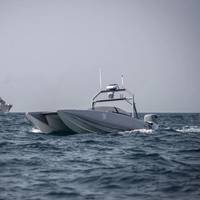
There is little question that world militaries see the value of unmanned systems to complement their manned counterparts. The wars in Iraq and Afghanistan accelerated the development of unmanned aerial systems and unmanned ground systems to meet urgent operational needs. Now, there is increasing interest in unmanned surface systems, resulting in their placement on an accelerated development path.Like their air and ground counterparts, these unmanned surface systems are valued because of their ability to reduce the risk to human life in high threat areas…
Shell Shipping, Orca AI Aim to Drive Navigation Innovation

Shell Shipping & Maritime and Orca AI kicked off with a pilot project trialing Tel Aviv-based start-up Orca AI’s maritime navigation platform on a Shell-managed gas tanker. But it has now morphed into a long-term development collaboration resulting in new features that can significantly enhance safety at sea. Here Saurabh Kumar, Project Engineer at Shell Shipping & Maritime, and Dor Raviv, CTO at Orca AI, reflect on outcomes and benefits of the partnership so far.Navigational error resulting in collision or grounding is one of the highest safety risks associated with maritime transport.
Australia Creates Permit-Free, Autonomous Marine Tech Test Area
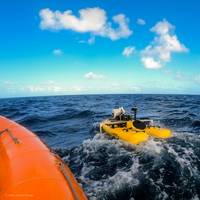
For the first time in Australia, autonomous marine technology developers have a location to safely test autonomous vessels without needing to apply for a permit. The Australian Institute of Marine Science’s ReefWorks inshore test range, near Townsville in north Queensland, was granted regulatory sandbox approval for uncrewed vessels from the Australian Maritime Safety Authority (AMSA).It’s the first approval issued under a proposed Australian Maritime Regulatory Sandbox advocated by Trusted Autonomous Systems (TAS), AIMS and AMC Search.
Protecting Offshore Energy Sources via USV
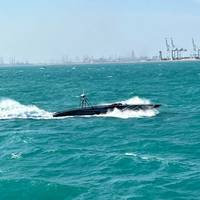
When most people discuss energy sources such as fossil fuel and green energy, it is from an “either-or” perspective. Some favor the former while others advocate for the latter. However, what is often lost in the arguments on both sides is that regardless of the type of energy being extracted or generated, those platforms that are offshore, especially oil rigs, oil and gas pipelines, and wind farms, are incredibly vulnerable to anyone who wants to attack these sources in wartime…
USEA Ocean Data One Step Closer to Uncrewed Ship
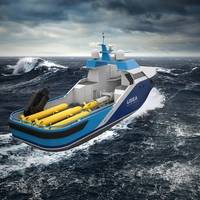
USEA Ocean Data has received preliminary approval to build and operate a 24-meter uncrewed vessel on Norwegian waters reports the company's CEO, Felipe Lima.USEA has developed a unique technology for safe seabed data acquisition with the help of unmanned vessels and autonomous underwater vehicles. Right after New Year came the preliminary validation that the company needed to build and operate a the vessel on Norwegian waters."We are very few companies who have passed such preliminary assessment from the Norwegian Maritime Authority…
Vessel Autonomy in Offshore Wind: Scaling up Ops via Tech, Regulation
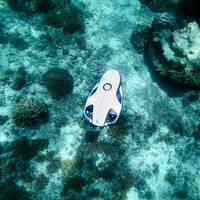
Autonomous technology is adding value to the offshore wind (OSW) industry, its supply chains and government policy with the potential to deliver benefits such as increased operational efficiency and safety, and reductions in human error and operational costs. With the unique needs for wind leases and their relative close proximity to shore, a wider group of systems and technologies can be deployed.A developing regulatory landscapeAutonomous technology is the result of rapid advancements in sensors and imaging, vessel connectivity, machine learning, and more.
Are Unmanned Surface Vessels the Key to a 500-Ship U.S. Navy?
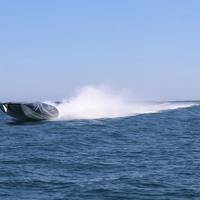
In an era of great power competition, navies – by virtue of their ability to span the globe and effectively deliver combat power – are likely to be the sine qua non of military power. This leads, naturally, to the tendency to count numbers of ship hulls when comparing the strength of navies. Lost on no one is the fact that the size of China’s Navy now exceeds that of the U.S. Navy, and the gap in ship numbers is growing.During the Cold War, while the quality of their ships might not have been equal to that of the U.S.
Kongsberg to Equip Three Polish Navy Warships with Hugin AUVs
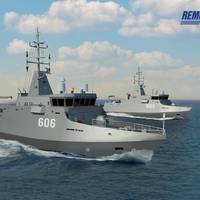
Norway's Kongsberg Maritime has secured a contract award with Polish shipbuilder Remontowa Shipbuilding SA (RSB) to supply three shipsets of Kongsberg Hugin Autonomous Underwater Vehicle (AUV) systems and related HiPAP positioning and communication systems for three newbuild warships for the Polish Navy.The total contract value exceeds €10 million, with the Kongsberg equipment planned for the next three ships in the Kormoran II Mine-Countermeasures (MCM) vessel program (#4, #5, and #6).These three ships will be delivered between 2026 and 2027.
AVIKUS' Autonomous Navigation nears Commercialization
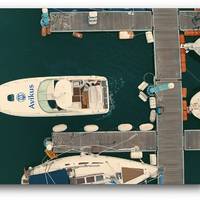
AVIKUS, HD Hyundai's autonomous navigation in-house startup, is nearly ready to bring to market its autonomous navigation solution for the pleasure boat market, and plans demonstrations later this month at the 2022 Fort Lauderdale International Boat Show (FLIBS). There the company will introduce and showcase Neuboat, an autonomous phase-2 navigation solution for leisure boats featuring the Avikus Navigation Assistant System (NAS) and Docking Assistant System (DAS).Avikus NAS is…
Sea Machines Debuts AI-ris Computer Vision for Commercial Vessels
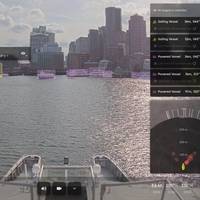
Marine perception sensor aims to provide high-def situational awareness to eliminate at-sea collisions and allisionsSea Machines Robotics unveiled AI-ris (Artificial Intelligence Recognition and Identification System), a new marine computer-vision navigation sensor designed to improve safety and performance while vessels are underway. Sea Machines’ AI-ris uses digital cameras and AI-processing to detect, track, classify and geolocate objects, vessel traffic and other potential obstacles in the majority of operational conditions, day or night.
Argeo First to Operate Maritime Robotics' Mariner X Unmanned Surface Vessel
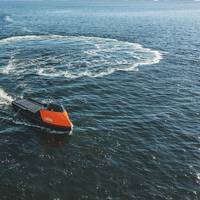
Maritime Robotics' new multi-purpose Unmanned Surface Vehicle (USV) platform, the Mariner X, is the company's most configurable and optimizable USV platform to date, built to deliver high-quality data acquisition at sea.The first operator of the new Mariner X USV platform is Argeo. Dubbed Argus, Argeo’s first unmanned survey and inspection vehicle is intended to exploit the strong demand for accurate ocean mapping, especially within the growing offshore wind market. The Argus…
SpaceX, ABS Ink JDP on Remotely Controlled Rocket Recovery Droneships
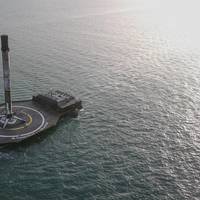
SpaceX and ABS signed a joint development project (JDP) to review the remotely controlled functions of autonomous rocket recovery droneships used for booster rocket recovery at sea.The rocket recovery droneships are modified to include an expanded deck to increase the size of the landing platform, four thruster engines for propulsion and to hold on station, and blast shielding to protect electrical and engine equipment on deck. The droneships are entirely unmanned during landings…
SAFEMATE Autonomous Vesel Project Launched
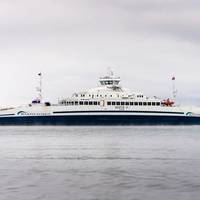
A newly launched autonomous vessel project aims to improve and assess the safety and efficiency of autonomous navigation systems and deploy a pilot on an operational ferry.Partners DNV, Kongsberg Maritime, Kongsberg Seatex, Bastø Fosen and NTNU announced the launch of the new SAFE Maritime Autonomous Technology (SAFEMATE) project, at the Nor-Shipping trade fair on Tuesday.The promise of automating more functions in shipping shows great potential, and interest continues to grow throughout the industry as more projects are developed.
Rolls-Royce Unveils New Automation Systems With Sea Machines Tech
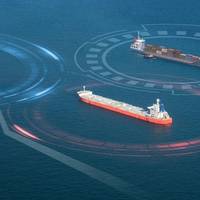
Rolls-Royce is expanding its range of mtu NautIQ ship automation systems with three new products offering different levels of intelligent crew support, autonomous control and remote command capabilities.The new products—mtu NautIQ CoPilot, mtu NautIQ CoOperate and mtu NautIQ CoDirect—are the next step in the cooperation between Rolls-Royce and autonomous control and remote-vessel command systems developer Sea Machines Robotics, which was first announced in September 2021.The most advanced intelligent pilot assist system of the new product range…
Kiel's Future includes Autonomous, Electric Water Taxis
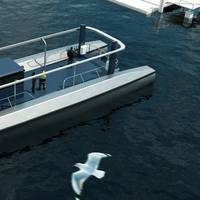
“Wavelab” will be an advanced testbed for sustainable urban mobility technologiesTorqeedo won a contract to supply a complete electric drive train for an autonomous boat in the German city of Kiel. Dubbed “Wavelab”, the electric vessel will serve as a research platform for the “Clean Autonomous Public Transport Network” (CAPTN) initiative in Kiel. The program aims to create the infrastructure for an integrated inner-city mobility network based on multiple modes of transport on…


